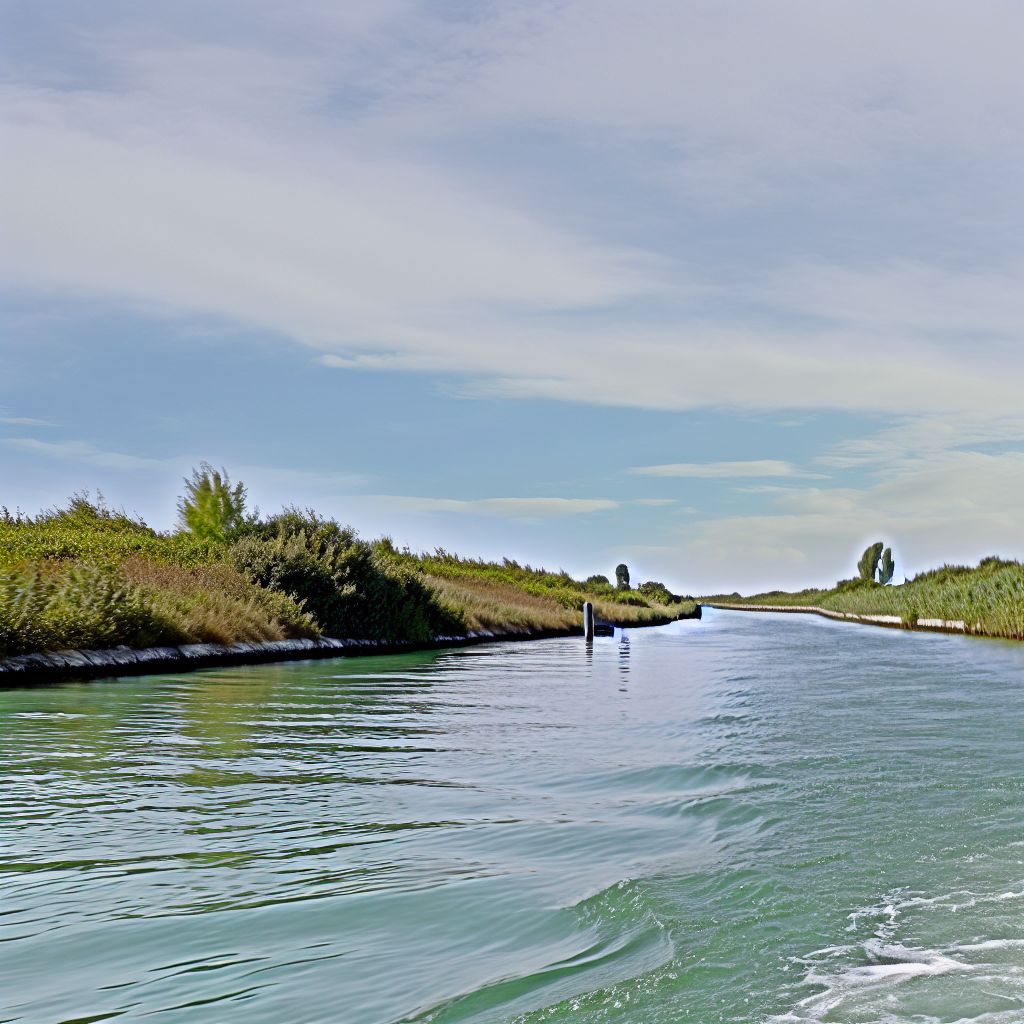Deutsch: Wasserstraße / Español: Vía acuática / Português: Via navegável / Français: Voie navigable / Italiano: Via d'acqua
In the maritime context, a "waterway" refers to any navigable body of water that can be used for transportation or shipping. These include rivers, lakes, canals, and seas that are sufficiently deep, wide, and calm to allow the passage of boats and ships. Waterways are crucial for maritime transport, providing economical and efficient routes for the movement of goods and people across different regions. They play a key role in global commerce and the fishing industry, as well as in recreational boating and tourism.
Description

Waterways are categorized based on their navigability, size, and the types of vessels they can support. Major waterways like the Panama Canal or the Suez Canal are critical for international shipping as they facilitate the movement of large cargo ships between oceans. Smaller waterways, such as inland canals and river systems, are vital for regional trade and may be used by smaller commercial vessels, personal boats, or recreational watercraft.
Application Areas
- Commercial Shipping: Using large rivers, canals, and seas to transport goods and commodities between ports.
- Recreational Boating and Tourism: Providing scenic routes for cruises, boat tours, and private yachting.
- Fishing Industry: Serving as fishing grounds and supporting the livelihoods of communities dependent on fishing.
- Environmental and Water Resource Management: Acting as sources of water for agricultural, industrial, and domestic use, while also being monitored for Environmental Conservation.
Weblinks
- environment-database.eu: 'Waterway' in the glossary of the environment-database.eu
- bremen-huchting.de: 'Wasserstraße' in the bremen-huchting.de (German)
Articles with 'Waterway' in the title
- Waterways: Waterways in the maritime context refer to natural or artificial routes of navigable water that are used for transportation, trade, and various other activities related to shipping and boating
- NSW waterways: The NSW waterways (New South Wales Waterways) was replaced in 2004 by NSW Maritime and this was again replaced and merged in 2011 with "Roads and Traffic Authority" to form "Roads and Maritime Services"
Summary
A "waterway" in the maritime context is an essential Component of the global transportation network, facilitating both local and international trade. The strategic importance of waterways has led to ongoing investments in their development and maintenance, ensuring they meet the navigational requirements of modern vessels and contribute positively to economic growth and environmental sustainability.
--
Related Articles to the term 'Waterway' | |
| 'The Great Lakes' | ■■■■■■■■■■ |
| The Great Lakes in the maritime context refer to a group of five interconnected freshwater lakes located . . . Read More | |
| 'River' | ■■■■■■■■ |
| River in the maritime context refers to a natural waterway characterized by a continuous flow of water, . . . Read More | |
| 'Transport' | ■■■■■■■■ |
| Transport: In the maritime context, \'transport\' generally refers to the movement of goods and people . . . Read More | |
| 'Oversea' | ■■■■■■■ |
| Deutsch: Übersee / Español: Ultramar / Português: Ultramar / Français: Outre-mer / Italian: Oltremare . . . Read More | |
| 'Shipping and Navigation' | ■■■■■■■ |
| Shipping and Navigation in the maritime context refers to the processes and practices involved in the . . . Read More | |
| 'Shipping Industry' | ■■■■■■■ |
| Shipping Industry: Shipping industry refers to the global sector responsible for Transporting goods, . . . Read More | |
| 'Transportation' | ■■■■■■ |
| Transportation in the maritime context refers to the movement of goods, people, or cargo via waterways . . . Read More | |
| 'Shipment' | ■■■■■■ |
| Shipment in the maritime context refers to the process of transporting goods or cargo by sea. This includes . . . Read More | |
| 'Icebreaking' | ■■■■■■ |
| Icebreaking in the maritime context refers to the practice of navigating and breaking through ice-covered . . . Read More | |
| 'Shipping' | ■■■■■■ |
| Shipping refers to the process of transporting goods and services across bodies of water, mainly through . . . Read More | |